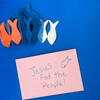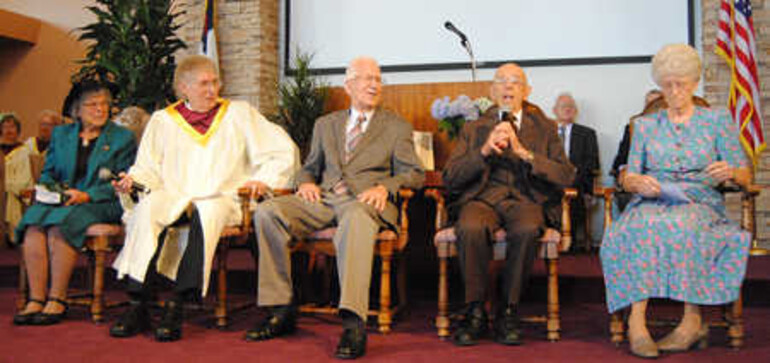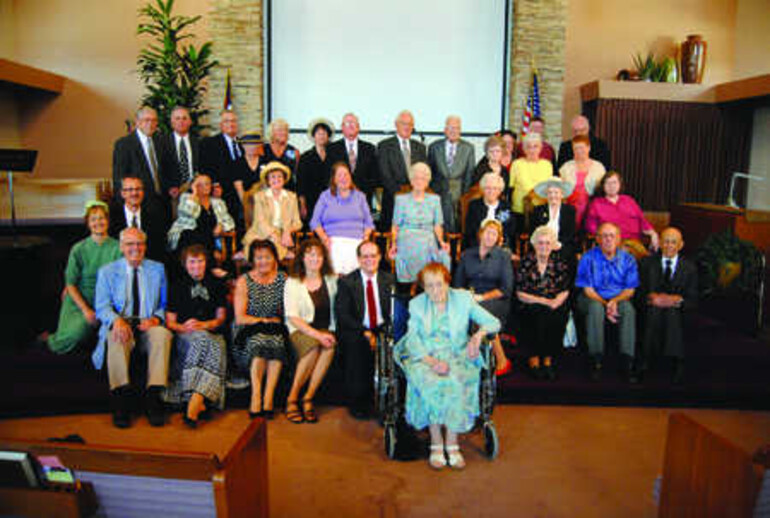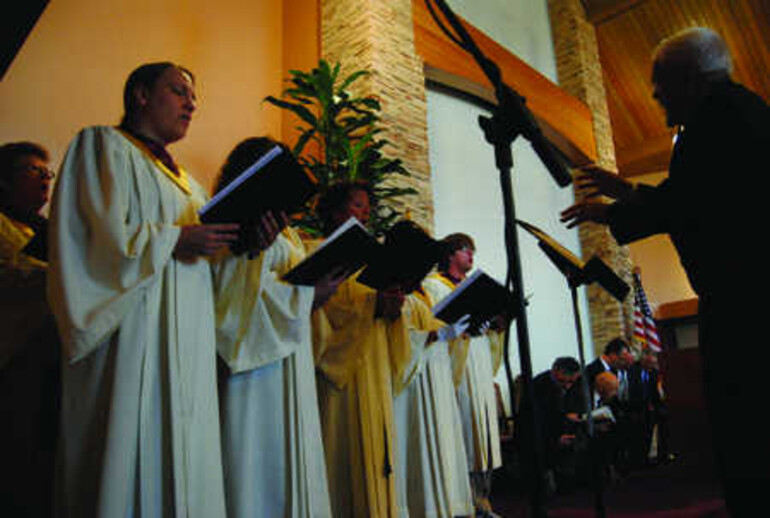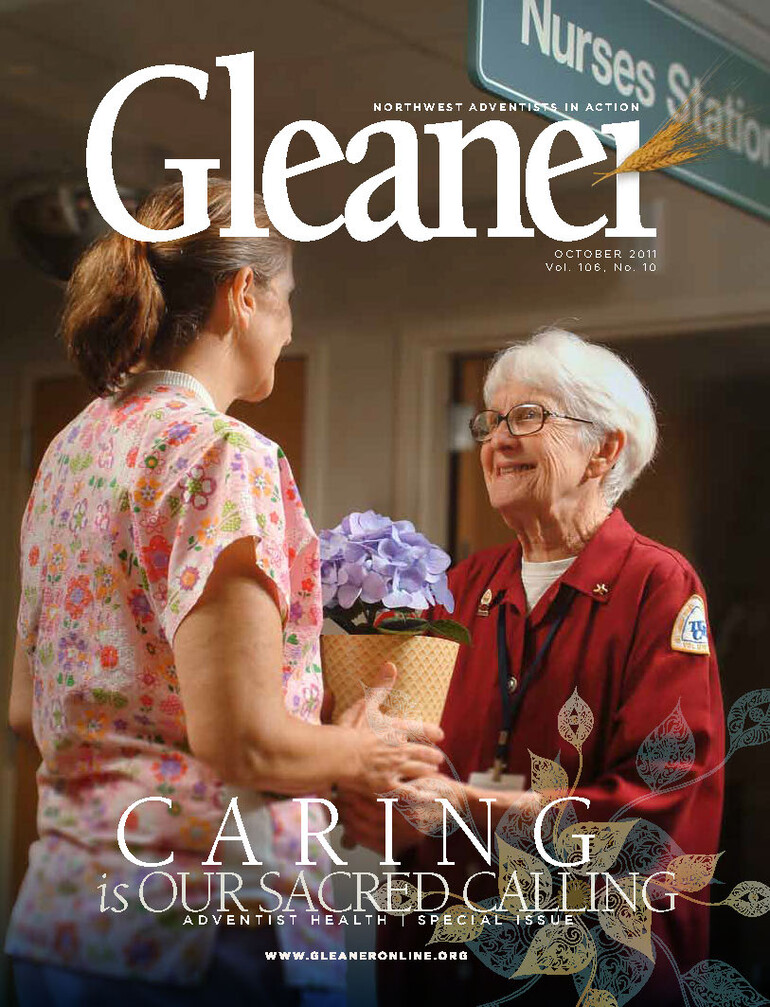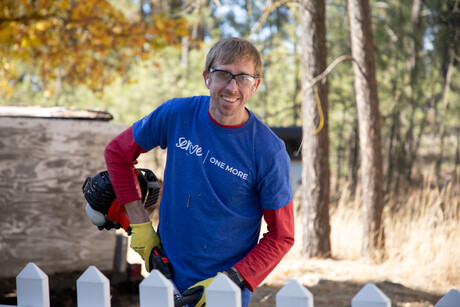Sam Knutson, Wenatchee, Wash., businessman, believes collective memory is as important to a church as short-term memory is to an individual, so he proposed a Sabbath for "Remembering."
"A person with amnesia or a church with Alzheimer's loses a sense of identity and purpose," agrees Mike Aufderhar, senior pastor. With help from people who attended church fifty or more years, "Pioneer Sabbath" took shape.
From the dim mimeographed bulletins to men in dark suits, ties and white shirts, to women in hats and gloves, and on through the order of service, the church service represented a time from the 1940s or '50s.
Sabbath School teachers willingly gave up the quiet of individual classrooms to lead lessons in the sanctuary. A nostalgic reading of a secretary's report written by Lucy Naeseth, Jan. 26, 1957, was read by her daughter, Helene Krikris. Naeseth is fondly remembered for her creative secretary's reports spanning a quarter of a century. Elders marched in and knelt while the choir sang "The Lord Is in His Holy Temple." Aufderhar gave a brief homily titled "Remembering."
A panel of five people shared vignettes from their combined 430 years of church attendance.
Ursella Ball recounted how the church became her social safety net and won her sailor-husband's heart during World War II. Because she was only 17 years old, her parents refused to give permission for her to marry. When the couple eloped, the church became family and gave them a wedding shower. This confirmed Ball in the faith and her husband, Vern, took Bible studies that led to baptism.
Carl Campbell recalled the mission stories and 13th Sabbath offering. He says, "Though we were dirt poor, we planned investment projects to augment what we could give. There were few visual aids. Pastors sometimes read the sermons. That wasn't so good, but there was solid Bible content."
Earl Bolton recalled hearing Roy Henneberg, former pastor, share a memory: A man sitting next to his father began to snore during church. The noise became so disruptive the pastor stopped and said, "Brother Henneberg, would you please arouse the sleeper?"
To which Henneberg's father said, "Pastor, you put him to sleep — you wake him up."
Until he was 14, Richard Litke dreamed of becoming a communist organizer. He believed the Karl Marx axiom, "Religion is the opiate of the people." Then he saw a lecture on astronomy advertised. Though he didn't know it at the time, he attended his first Seventh-day Adventist meeting. That led to an evangelistic series — baptism in Bellingham, Wash., school at Auburn Adventist Academy and Walla Walla College, and later a teaching ministry spanning 65 years.
"I remember those chapels, MV meetings, worship services and Sabbath Schools with investment offerings, mission reports and memory verses," Litke says privately. "That's where I learned to love God and understand grace — to me that was and is the ideal."


